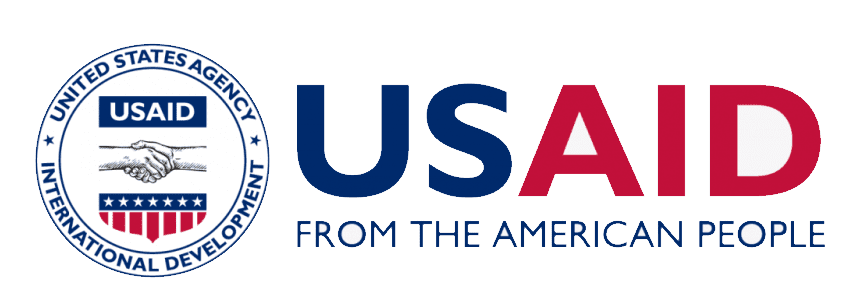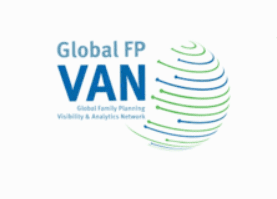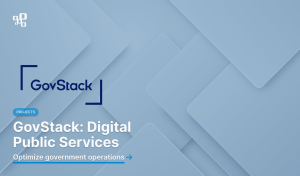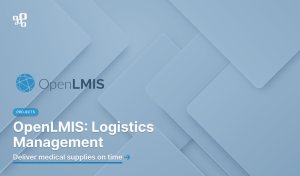The world today shows us perfectly the importance of moving health systems into a digitally enabled area. The reason is that traditional supply chains, being a critical link in health care systems, simply do not serve patients efficiently. And it is true not only for extreme conditions during the global pandemic but also in much calmer times.
Why global health care supply chains need to change
Collecting master data into a single data source seems to be crucial for effectiveness and harmonization of various stages of the health supply chain, such as e.g. registering and tracking medical supplies dispensed to patients or planning the delivery of vaccines and medicines around the world. Unfortunately, many health organizations do not use master identifier for products distributed globally and employ highly manual processes which – as all processes requiring human input – are simply prone to errors. All of this does not allow supply chains to work together and makes it difficult to get supplies where they are needed most. That is why the Product Catalog Management Tool (PCMT) came into being.
What PCMT really is
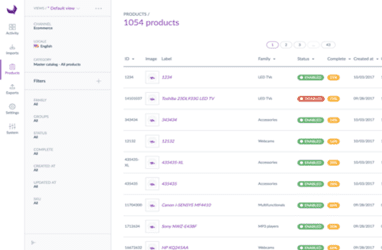
The Project Catalog Management Tool (PCMT), an open-source software tool released in January 2020, allows organizations to publish and manage product catalogs. Based on Akeneo, it connects many different identifiers used by different systems and provides support for a gradual transition to GS1 – a global standard for identifying medicines and products in health and many industries. GS1 has been supported by many global health participants. Thanks to establishing a single source of harmonized product master data, PCMT allows for interoperability across the eHealth ecosystem and across the supply chain from manufacturer to patient. What is more, it is a user-friendly product information management tool that is easily interoperable with other systems and supports multiple ways of coding, classifying and identifying products.
PCMT was developed by a non-profit global health innovator VillageReach. VillageReach works with governments in low-resource communities, developing, testing and implementing new solutions to critical health system challenges. So far, SolDevelo has worked with VillageReach on numerous undertakings, such as developing the OpenLMIS software. Thanks to our expertise and the skilled development team, we have made a lasting contribution to projects with a significant global impact.
The development process
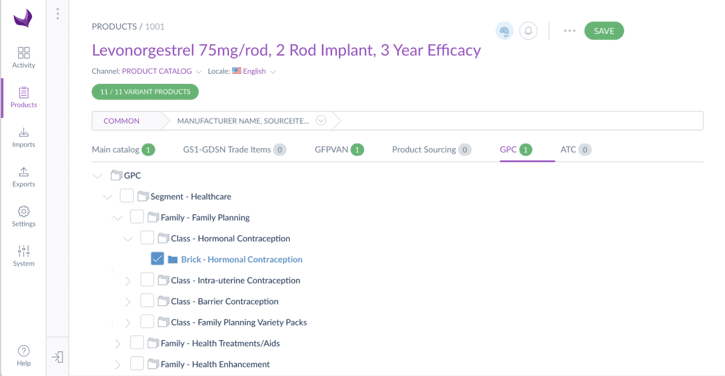
When developing the Project Catalog Management Tool, the VillageReach team did have a solid base to start with. PCMT is actually a set of add-on modules to an industry-leading open-source tool, Akeneo Community Edition. Akeneo, a Product Information Management (PIM) solution, significantly improves product data quality and accuracy while simplifying and accelerating product catalog management. Being a useful productivity tool, it helps the contributors to serve the product information in different languages and for different purposes. The PCMT project aimed at adding critical functionality to support Akeneo use in global health supply chains.
Choosing Akeneo as a base determined the choice of programming language – PHP, framework (Symfony) and other elements of the stack – ElasticSearch and Mysql. In order to quickly deliver working software in two-week sprints, VillageReach turned to proven agile and lean practices. They have been established a committee of stakeholders to decide about priorities as well as represented a wide set of requirements from many country supply chains. An emphasis was put on Continuous Integration and Continuous Deployment (CI/CD) and the PCMT team provided online instances to test drive the latest code. As the main intention was to deliver modular functionality from start to finish, the PCMT team was working on breaking large feature requests into granular user stories. During the “Product Catalog Co-Creation Workshop” in December 2019, VillageReach raised awareness not only on the complexities in managing product master data but also on the necessity to support a National Product Catalogue (NPC). It seemed critical to establish governance and clear definitions of what group can edit or add to the catalog and how to determine quality over time so the catalog is trusted across supply chain participants.
SolDevelo contribution
At the beginning, the SolDevelo team involved in the PCMT project consisted of just 2 members. However, for the last few months, there are 5 of our people seconded to it. They can boast not only strong backend development competencies but also the experience from the quality assurance field. Since the start, they have been working in Scrum with the Product Owner residing in the US. While technical aspects of the project pose no obstacle in the intercontinental cooperation, the time zone difference may be a challenge. As SolDevelo team’s working hours in Poland are exactly when the West Coast of the United States is sleeping, the communication has to be conducted very carefully and precisely. However, you know what they say: always look on the bright side of life. In fact, it is a good opportunity to learn how to avoid communication ping-pong and reach conclusions fast and effectively.
According to our employees, the technology stack chosen for the PCMT is well thought out, increasing the project efficiency and helping it to grow. “Everything runs in docker containers and we have full CI/CD setup in Gitlab environment: each commit is triggering a build and tests are run, which gives us fast feedback about our development work. We also have automatic deploys to the testing environment to make the QA work pleasant and effective.”
One of a kind experience
The role of the Project Catalog Management Tool in transforming health care supply chains around the world is not to be underestimated. It enables end-to-end visibility, allows shipments to flow between systems and helps supply chains perform. Thanks to the diversification of disciplines and organizations involved, it allows for a more integrated view of the challenges and available possibilities. As our team sums up: “For all of us, this is a fascinating new experience – being able to work not with a commercial product, but with one that is open-sourced. We are happy that our work helps to make the world a better place. The better information about different medicines there is, the more effective health care becomes. Great to be part of the solution!”
It is important to mention that the PCMT development has been funded and supported by USAID, the Bill & Melinda Gates Foundation, and Digital Square.


